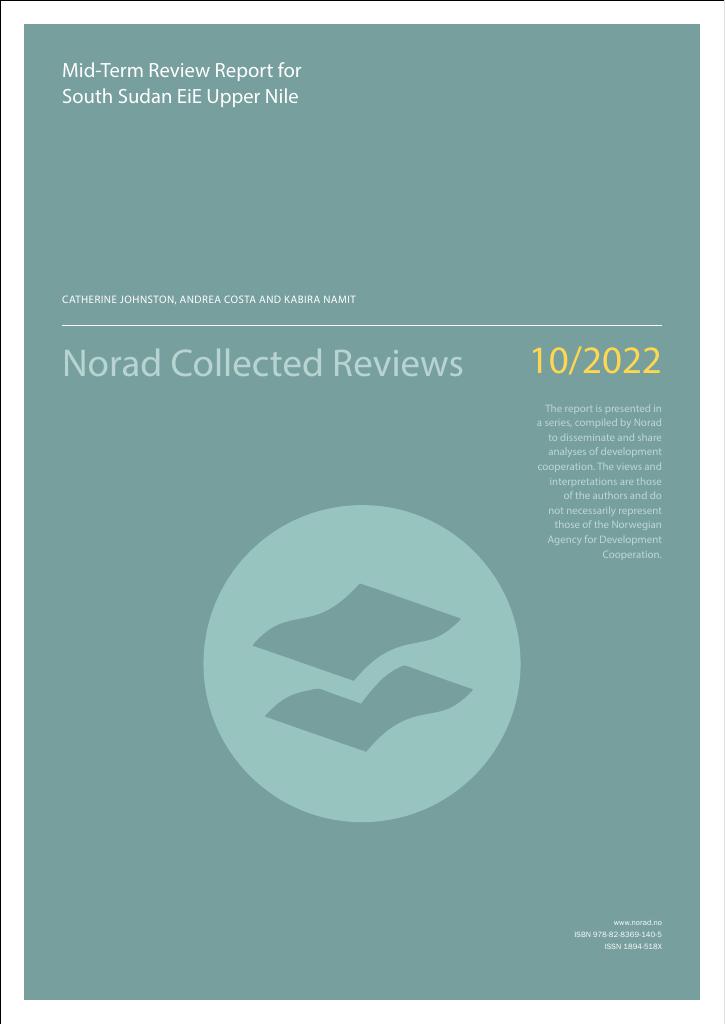Evaluering
Mid-Term Review Report for South Sudan EiE Upper Nile
Children in the Education in Emergencies (EIE) Upper Nile project area have not escaped the devastating impacts of COVID-19 and school closures on their education, health and wellbeing. The picture that has emerged from global studies on the impacts of COVID-19 and school closures on children’s learning is bleak. Learning losses are profound and inequitable, with large disparities being seen both within and across countries. At the same time, the fundamental role of school in protecting children and supporting their health and wellbeing has become abundantly clear as children face increased protection, health and wellbeing risks because of the profound impacts of COVID-19 and school closures. South Sudan has also faced additional challenges. Alongside navigating the COVID-19 crisis, internal conflicts and disasters have disrupted education services and caused widespread displacement of populations since the project began. Despite the formation of the unity government in February 2020, the context has remained insecure with sporadic intercommunal conflict occasionally disrupting project activities. This MTR provides ADRA with an independent evaluation and reflection on the progress of the EiE Upper Nile project and provides recommendations on how ADRA can rise to the significant challenges that continued state fragility and COVID-19 has placed on education services in South Sudan. The requirements of the Terms of Reference (ToR) were to assess the progress and achievements of the EiE programme in Upper Nile, South Sudan. The MTR assessed progress against each of the project’s objectives and targets and has identified areas to strengthen. The MTR paid close attention to different stakeholder perspectives, including the perspective of children, parents, teachers and education authorities. A total of 535 individuals were interviewed as part of the MTR, including 286 males and 249 females. The MTR assessed student learning in literacy and numeracy using adapted ASER assessment instruments from the initial baseline study. A total of 284 students made up of 146 male students and 138 female students were assessed from Grade 4 and Grade 7 with 2 students from Grade 10. Several limitations concerning the assessments were noted, which may have limited student’s capacity on the day of the assessment. These have been noted in the limitations section. The evaluation studied the extent to which ADRA’s whole school approach was contributing to improvements in the quality of education services in Upper Nile, where the EiE project was implemented. Due to the harmful impact of COVID-19 and school closures on learning continuity, the evaluation needed to consider how the project had been reorientated to support the physical, social and emotional safety and wellbeing of learners. The evaluation also responded to key evaluation questions that had been framed according to the OECD DAC evaluation criteria, covering project relevance, coherence, effectiveness, efficiency, impact and sustainability.
